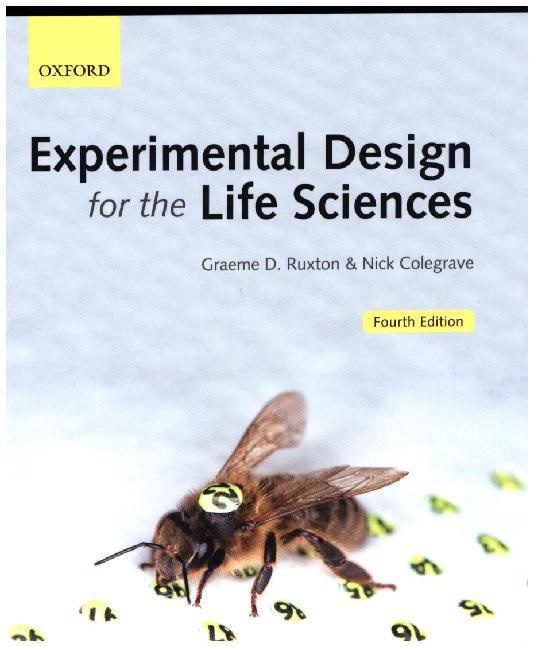Read more
The careful design of experiments lies at the core of good research. Experimental Design for the Life Sciences equips you with the skills you need to effectively design experiments, making this essential aspect of the research process readily understandable. It demonstrates how good experimental design relies on clear thinking and biological understanding, not mathematical or statistical complexity.
With a refreshingly approachable and articulate style, the book walks you through the considerations that go into designing an experiment in clear, practical terms. Using examples drawn from across the life sciences - from ecology, biochemistry, molecular biology, genetics, and health sciences - the authors illustrate how these concepts are applied within the broad context of real biological research.
Online Resources
The online resources to accompany Experimental Design for the Life Sciences feature:
For students:
· Self-test questions and answers
· Additional examples
· Supplementary sections discuss complex concepts and statistical issues in more depth
· Links to useful websites and free software
For lecturers:
· Suggested course structures, complete with practical exercises
· Figures from the book, available to download
List of contents
- 1: Why you should care about design
- 2: Starting with a well-defined hypothesis
- 3: Selecting the broad design of your study
- 4: Between-individual variation, replication, and sampling
- 5: Pseudoreplication
- 6: Sample size, power, and efficient design
- 7: The simplest type of experimental design: completely randomized single-factor
- 8: Experiments with several factors (factorial designs)
- 9: Beyond complete randomization: blocking and covariates
- 10: Within-subject designs
- 11: Taking measurements
About the author
Graeme Ruxton obtained a first degree in Physics before getting a PhD in Statistics and Modelling Science. After his PhD he worked for several years with the Scottish Agricultural Statistical Service in Edinburgh. He then got a lectureship in Ecology at the University of Glasgow, where he is now Professor of Theoretical Ecology.
Summary
The only undergraduate textbook devoted to experimental design for the life sciences, making this essential aspect of the research process readily understandable.

